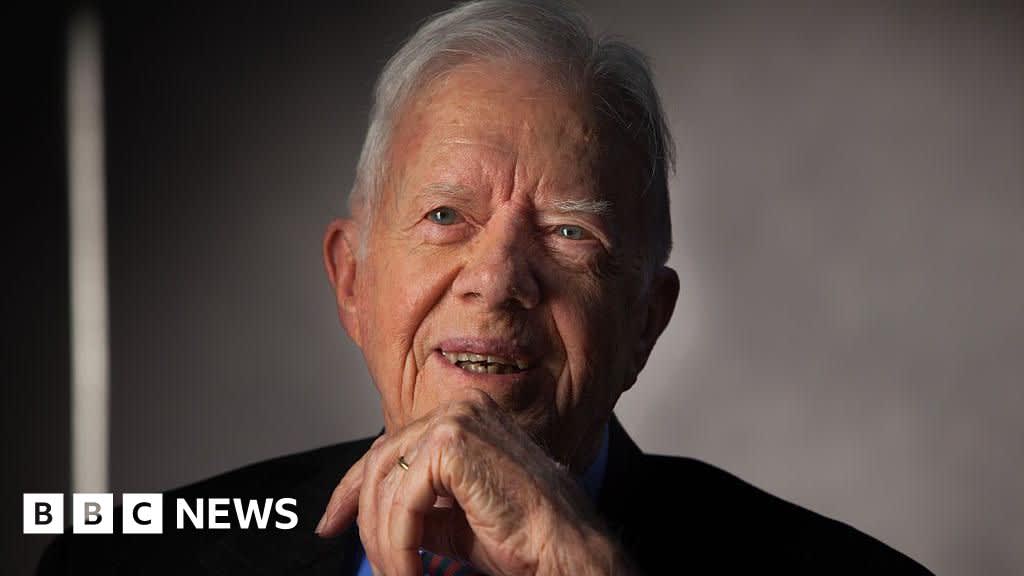Former President Jimmy Carter’s state funeral will take place on 9 January at the Washington National Cathedral, part of a national day of mourning for the longest-lived US president.
Other details are emerging on how the country will pay tribute to the world-renowned humanitarian, who died on Sunday, aged 100, at his home in Plains, Georgia.
There will also be public ceremonies in Atlanta, Georgia, before Carter is buried in Plains, according to the Carter Center.
Following US custom marking the death of important figures and leaders, President Joe Biden has ordered US flags on federal properties to be flown at half-staff for 30 days. The timespan will include the inauguration of President-elect Donald Trump.
The Carter family said it had “respectfully and gratefully” accepted an invitation from the US Congress for Carter to lie in state in the rotunda of the US Capitol building. By tradition, this is a public viewing where people will file through to pay respects, including lawmakers and high-profile individuals as well as everyday Americans.
Carter will then be buried on his family’s property, next to his wife, Rosalynn, who died at 96 in November 2023.
Biden has asked that 9 January be used to pay homage to America’s 39th president, James Earl Carter Jr.
“He embodied the very best of America: A humble servant of God and the people,” he said in a statement.
Trump wrote on Truth Social that though he and Carter disagreed philosophically, Carter was “a truly good man” and had his “highest respect”.
Other US leaders have also put out statements praising Carter’s life and work, including former presidents Bill Clinton and George W Bush.
Former President Barack Obama said Carter “taught all of us what it means to live a life of grace, dignity, justice and service”.
Carter, the former Georgia peanut farmer turned Naval officer turned US president, held office from 1977-1981.
During his time in the White House, he championed causes for global peace, the environment and human rights, and later earned a Nobel Peace Prize in 2002.
One of his most notable achievements in office was brokering a peace deal in the Middle East between Egypt and Israel.
However, Carter’s accomplishments as president were eclipsed by a crumbling US economy and what he called “a crisis of confidence”.
He served only one term in the White House and lost in a sweeping defeat to Ronald Reagan in 1980.
Much of Carter’s legacy was built from his post-presidential life.
He continued to work towards global peace and met with international leaders; he established the Carter Center, a non-profit launched to help eradicate disease; and, well into his 90s, he worked with Habitat for Humanity to help build and repair homes.
“We are deeply saddened by President Carter’s passing, and our prayers are with the Carter family,” said Jonathan Reckford, CEO of Habitat for Humanity International.
Source: www.bbc.com
